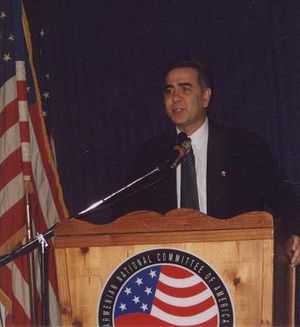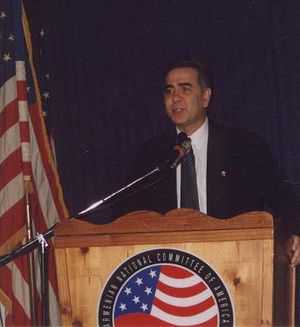Armenians Must Take Bold, Pre-emptive
Measures to Counter all Hostile Acts

By Harut Sassounian
Publisher, The California Courier
Having been victimized by many conquerors throughout history, Armenians have developed a strong instinct for survival. To stay out of trouble, they have learned to be loyal and even subservient to the states that ruled over them.
While Armenians gained plenty of “moral victories,” their actual battlefield successes have been few and far between. One has to go back to two thousand years to find a rare example of a conquering Armenian ruler, King Tigran the Great (140-55 BC) whose vast empire extended from the Caspian to the Mediterranean Sea. In the modern era, prior to the Armenian Genocide, Armenian Freedom Fighters (Fedayees) fought back against the murderous Turks and Kurdish mercenaries. During the Genocide, the Armenians of Aintab, Hajin, Musa Dagh, Sassoun, Van, and Zeitoun bravely defended themselves, while 1.5 million of their kinsmen were slaughtered like sheep. The heroic Battle of Sardarabad saved the remnants of the Armenian people in Eastern Armenia, culminating in the establishment of the first Armenian Republic in 1918. Finally, beginning in 1988, brave young men and women battled the much larger and better armed forces of Azerbaijan to liberate Artsakh (Karabagh).
In the late 19th and early 20th centuries, many western missionaries, tradesmen, writers and adventurers, often described the Armenians they encountered in the Ottoman Empire as “cringing.” Canadian-Armenian website Keghart.com, in an editorial posted last week, quoted Dr. William Goodell’s depiction of the Armenians of Constantinople in 1871: “Four centuries of torture, of oppression, and of suspense have stamped its impress upon an entire community… constant fear, constant agony, constant humiliation have so crushed out every trace of manhood, that they are still cringing, fawning, an abject race. Several generations of happier descendants can alone efface the mental taints acquired in those long years of vassalage.”
Regrettably, many Armenians have yet to overcome the “slave mentality” — deeply ingrained in their psyche — inherited from ancestors who lived for centuries under foreign yoke. One comes across countless examples of self-effacing behavior in Armenian communities throughout the Diaspora and in Armenia itself. All too often Armenians meekly accept injustices and insults heaped on them by others.
It is high time that Armenians throw off their shackles and defend their inalienable rights. They must not remain silent in the face of abuse or physical attack, but respond appropriately without resorting to reckless actions that may endanger their communities or the homeland.
In the United States, for example, when elected officials, journalists or writers distort the facts of the Armenian Genocide, they must be severely criticized and discredited, so others would be warned to refrain from Genocide denial.
The most recent example of Armenian inaction is the feeble Armenian response to last week’s night-time attack by Azeri forces on Artsakh, causing the deaths of four Armenian soldiers and the wounding of four others. Beyond expressions of sympathy for the victims and condemning the attack, no concrete action was taken by Armenian officials.
In the aftermath of this vicious and unprovoked attack, Armenia should have announced the cancellation of the next round of negotiations with Azerbaijan over Artsakh. It is completely unacceptable to conduct peace talks, while Azerbaijan is engaged in warfare. Under these circumstances, Armenians have the right to take all possible actions to defend themselves from future attacks. Rather than merely issuing a condemnation, the Armenian side at a time of its choosing should carry out punishing pre-emptive strikes so that Azeris would think long and hard before mounting another attack. Azerbaijan should clearly understand that any further aggression on their part would:
1. Cause the suspension of the peace talks, thus delaying the resolution of the conflict rather than expediting the negotiating process.
2. Lead Armenia to eventually abandon all peace talks, since it has little to gain from these negotiations. Azerbaijan is the one that desperately needs to negotiate in order to secure concessions from Armenia.
3. Signal to the world that the government of Azerbaijan is not interested in finding a negotiated settlement to the conflict and is responsible for its collapse.
4. Discredit the good faith effort of the mediating countries – France, Russia and the United States.
5. Force Armenia to initiate military action, causing a disproportionate amount of destruction, even damaging the oil pipelines, in order to discourage Azerbaijan from further attacks.
Armenians must realize that they no longer live in the Ottoman Empire and are no one’s slave. They should shake off their psychological shackles and take all necessary measures to defend their national interest!





